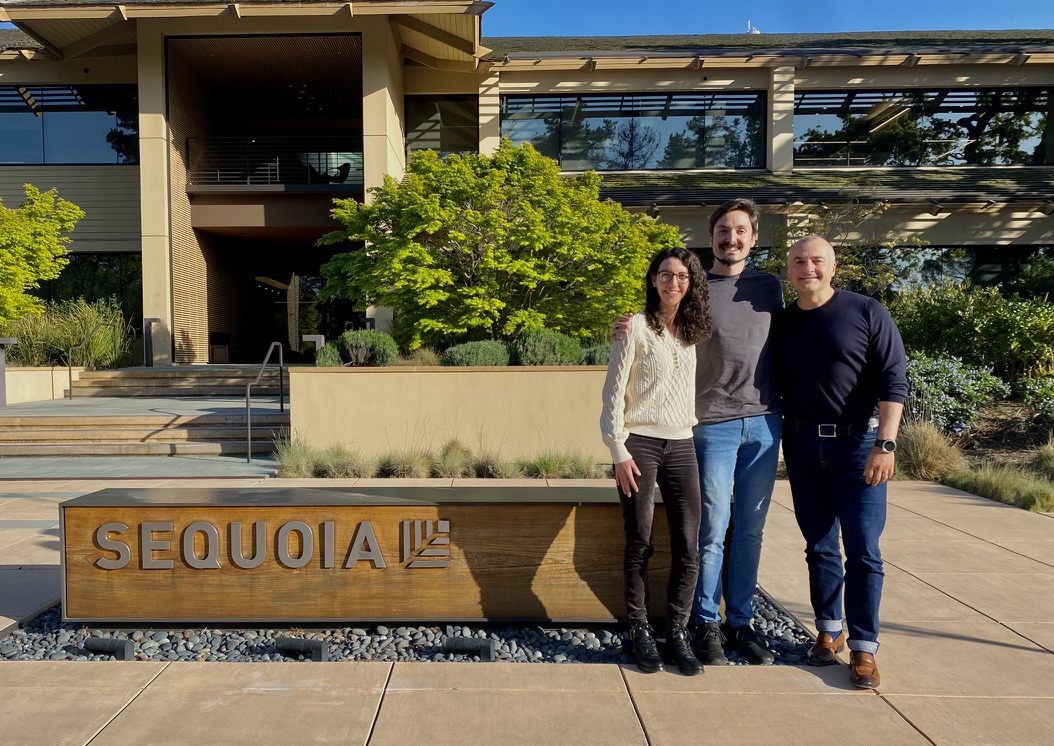New Fellowship: How Sequoia is Supporting Open Source
FastAPI creator Sebastián Ramírez is the first recipient of the Sequoia Open Source Fellowship.
Open source is the lifeblood of software. Downloads of the most popular open source packages are measured in the trillions and growing fast, and most commercial software today features libraries and programs made better and more reliable by open source contributors around the world. At Sequoia, we have a long history of partnering with companies that pioneered the commercialization of open source software, such as MongoDB and Confluent, and the pace of our partnerships with open source companies is also on the rise, including Chainguard, Deno, dbt labs, Infracost and Temporal Technologies in recent years. But we also recognize that open source projects that don’t become businesses are still critical tools for our portfolio companies and the broader community.
Last year, we were fortunate enough to meet Sebastián Ramírez, creator of the wildly popular open source Python framework FastAPI, which is used everywhere from Fortune Global 500 corporations such as BMW, American Express and Roche, to academia, to nonprofits such as NASA and the Red Cross. Sebastián was overflowing with ideas to improve on what he’d built—but because even the most beloved open source projects rarely pay the bills, he was forced to split his time between FastAPI and part-time work.
His situation inspired us to think about how we might support his work and that of other open source creators who give so much to the broader tech ecosystem. Today, we are thrilled to share that Sebastián is the first Sequoia Open Source Fellow.
Each year, we’ll invite a small number of leading open source contributors to this new fellowship program and will provide a stipend to cover their living expenses for 6 to 12 months, so they can dedicate themselves to their open source work full-time. They’ll also become members of the Sequoia community, connecting with and mentoring founders. (Sebastián recently helped us host the closing event for our seed-stage catalyst, Arc.) In short, we will support each other. We believe Sequoia can benefit greatly from fellows’ expertise to help us better understand the open source ecosystem, but there are no other strings attached. Our goal is to give Sebastián and builders like him the time and space to innovate, whatever that means for them.
We recently sat down with Sebastián to talk about FastAPI, his fellowship experience so far, and what’s next.
For those who aren’t familiar, what is FastAPI and why did you build it?
Sebastián: FastAPI makes life easier for developers working in applications in the cloud using Python, which is one of the most popular programming languages—it’s often used for machine learning, data science and AI. You can use FastAPI to take advantage of all the features of code editors, like auto completion and inline errors, while getting application best practices by default with simple code, all in one place, so you can be super efficient and still get the best possible quality and performance.
I was working on teams building data and machine learning products, and we kept seeing the same problems and mistakes. I tried every tool I could find, but nothing ticked all the boxes—so eventually, I decided to try to put all the things I liked about other frameworks into one project. I didn’t expect it to work, but it did! I released the first public version of FastAPI on December 24, 2018, two years after the version of Python that enabled FastAPI, and it’s been downloaded more than 800,000 times since. It was even used to share data captured by the James Webb Space Telescope—that was a highlight.

Why did you decide this fellowship was right for you?
Sebastián: Ever since I started FastAPI, I’d been trying to optimize to work more on it and my other open source projects, like Typer and SQLModel. But because they were growing so quickly, it took a lot of time just to maintain them, and even more to improve them. I quit my job and worked part-time, but it still wasn’t enough. So doing open source exclusively was super appealing—not just the hours, but the continuity of those hours. I knew being able to focus deeply would drive a lot more progress.
I was also interested in learning about how businesses are built, because I think for FastAPI, a self-sustaining model will probably make sense at some point. It can help a lot of people and organizations be more efficient, and there’s value in that. But I wanted to focus first on just making it the best tool possible.
What has the experience been like so far?
Amazing. Honestly, I didn’t expect it to be this nice. We had calls before we started, and those were good. It was good on paper. But it’s been just as it was on those calls. We talk about companies and projects, but otherwise, I get to just work like crazy.
One thing that’s really valuable but less obvious is that I can focus on what I know will have the biggest impact, even if it’s invisible to most users—like the underlying building blocks of FastAPI, or even other open source projects it uses. I’ve even been working on improving the way internal code (reference) APIs are documented in Python itself recently, which is the kind of thing it’s usually very difficult to allocate time and resources for. But it will be super valuable, for FastAPI users and everyone else.
What are you most looking forward to—during the rest of your fellowship and beyond?
A bunch of things! The most obvious one is integration for the new version of Pydantic, which is now part of the Sequoia community, too. It’s going to mean a big boost in performance for FastAPI and the other tools, plus better support for edge cases. I’m also working on more documentation of FastAPI’s internal code—I have lots of tutorials, but there isn’t a dictionary-like code API reference, which is one of the things people request the most. And I’m making improvements to FastAPI itself, and to Typer, SQLModel, Asyncer, and others, which will simplify building the whole stack in FastAPI applications.
I’m also looking forward to continuing all the relationships I’ve built, including with you two! I was always scared of VCs. The idea of raising capital and building a company wasn’t super intuitive to me. But this has been a mindset shift—seeing that it can actually be good. We’re friends! It feels like, “Okay, this really can work.”
Consideration for the Sequoia Open Source Fellowship is by invitation only; we aim to support established creators and enable them to chart the paths of their projects as they continue to grow. If you’re interested in learning more, contact us here.
